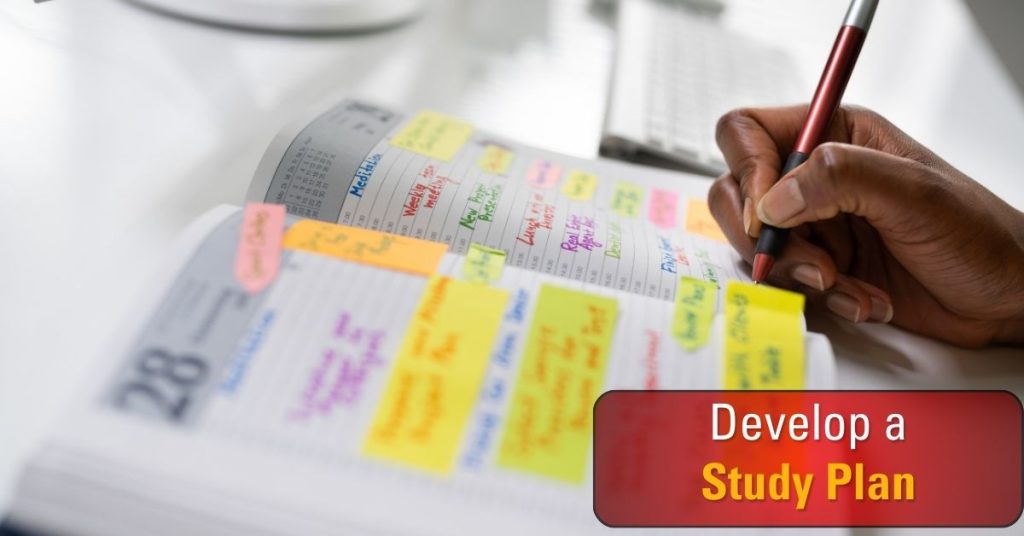
Experiencing academic failure can be disheartening, but it doesn’t have to define your future. Whether you’ve struggled with exams, fallen behind in your studies, or faced challenges that have impacted your performance, it’s important to remember that failure is not the end—it’s a stepping stone to success.
With the right strategies and mindset, you can turn setbacks into opportunities for growth and achievement. In this blog, we’ll explore seven actionable steps to help you transform academic failure into success, paving the way for a brighter and more confident academic journey.
1. Acknowledge and Accept Your Failure
The first step in overcoming academic failure is to acknowledge and accept it. Denial or avoidance will only prolong the negative impact on your academic and emotional well-being. Here’s how to approach this step:
Reflect Honestly: Take time to understand what went wrong. Were there specific subjects, assignments, or exams that you struggled with? Reflecting on these areas can provide valuable insights.
Avoid Self-Blame: While it’s important to take responsibility, avoid excessive self-blame. Understand that failure is a part of the learning process and not a reflection of your worth.
Seek Support: Talk to friends, family, or a counselor about your feelings. Sharing your experiences can provide emotional relief and new perspectives.

2. Analyze the Reasons for Failure
Once you’ve accepted your failure, the next step is to analyze the underlying reasons. This involves a thorough examination of your study habits, lifestyle, and external factors. Consider the following areas:
Study Habits: Evaluate your study methods. Were you procrastinating, cramming, or using ineffective study techniques? Identifying these habits can help you adopt better strategies.
Time Management: Assess how you managed your time. Did you allocate sufficient time for studying, or were you distracted by other activities?
Personal Challenges: Consider personal issues that might have affected your performance, such as health problems, family issues, or mental health concerns.
External Factors: Reflect on any external factors like a challenging curriculum, inadequate resources, or lack of support from teachers.
3. Set Clear and Realistic Goals
Setting clear and realistic goals is crucial for turning failure into success. Goals provide direction and motivation. Here’s how to set effective goals:
Specific Goals: Instead of vague goals like “improve in math,” set specific goals such as “increase my math grade by one letter grade next semester.”
Measurable Goals: Ensure your goals are measurable. For example, aim to study for two hours each day or complete all assignments on time.
Achievable Goals: Set goals that are challenging yet achievable. Unrealistic goals can lead to frustration and further setbacks.
Relevant Goals: Make sure your goals are relevant to your overall academic and career aspirations.

Time-Bound Goals: Set deadlines for your goals. Having a timeline helps maintain focus and urgency.
4. Develop a Study Plan
A well-structured study plan is essential for academic success. It helps you stay organized, manage your time effectively, and track your progress. Follow these steps to create a study plan:
Identify Priorities: Determine which subjects or topics need the most attention. Prioritize based on difficulty level and importance.
Create a Schedule: Allocate specific times for studying each subject. Ensure your schedule is realistic and flexible enough to accommodate unforeseen events.
Use Effective Study Techniques: Incorporate proven study techniques such as active learning, spaced repetition, and practice testing. These methods enhance understanding and retention.
Take Breaks: Include short breaks in your study schedule to avoid burnout and maintain productivity.

Review and Adjust: Regularly review your study plan and adjust it based on your progress and any changes in your academic workload.
5. Seek Your Teachers’ Help
Don’t hesitate to seek your teachers’ help when striving for academic success. Teachers are valuable resources who can provide support, guidance, and clarification on difficult concepts. Here are some ways to effectively utilize your teachers’ help:
Classroom Questions: Don’t be afraid to ask questions during class. Engaging actively in the classroom can help you understand the material better and show your teachers that you are committed to learning.
Feedback on Assignments: Request feedback on your assignments and exams. Understanding what you did well and where you need improvement can help you perform better in future assessments.
Study Guides and Materials: Ask your teachers for study guides, additional reading materials, or resources that can aid your understanding of the subject matter. Teachers often have access to valuable resources that are not readily available elsewhere.

Clarifying Concepts: If you’re struggling with a particular topic, ask your teacher to explain it in a different way. Sometimes, a different explanation or perspective can make a concept click.
Participate in Class Discussions: Engaging in class discussions can help you better understand the material and develop your critical thinking skills. Teachers often provide valuable insights during these discussions.
By actively seeking your teachers’ help and utilizing the resources they offer, you can gain a better understanding of your subjects, improve your grades, and build a strong foundation for academic success.
6. Stay Motivated and Positive
Maintaining motivation and a positive mindset is key to overcoming academic failure. Here are some strategies to stay motivated:
Set Rewards: Reward yourself for achieving small milestones. Rewards can be as simple as taking a break, enjoying a favorite snack, or spending time with friends.
Stay Inspired: Read success stories of individuals who overcame academic failure. Inspirational stories can boost your morale and provide a sense of hope.

Visualize Success: Visualize yourself achieving your academic goals. Visualization can enhance motivation and reinforce positive behavior.
Stay Connected: Surround yourself with supportive friends and family. Positive relationships can provide encouragement and accountability.
Manage Stress: Practice stress management techniques such as exercise, meditation, and deep breathing. Managing stress is essential for maintaining focus and motivation.
7. Learn from Mistakes and Persist
Learning from your mistakes and persisting despite setbacks is crucial for turning failure into success. Here’s how to cultivate a growth mindset:
Embrace Failure: View failure as a learning opportunity. Each setback provides valuable lessons that can guide your future efforts.
Reflect and Adapt: Regularly reflect on your progress and adapt your strategies as needed. Flexibility and adaptability are key to overcoming challenges.
Celebrate Progress: Celebrate your progress, no matter how small. Acknowledging your achievements can boost confidence and motivation.
Stay Persistent: Persistence is essential for long-term success. Keep pushing forward, even when faced with difficulties. Remember that success often requires multiple attempts and continuous effort.

Seek Feedback: Actively seek feedback from teachers, peers, and mentors. Constructive feedback can help you identify areas for improvement and refine your approach.
Conclusion
Breaking these habits can significantly enhance your academic performance and overall well-being. By addressing procrastination, improving time management, adopting effective study techniques, minimizing distractions, enhancing note-taking skills, and prioritizing self-care, you’ll be better equipped to achieve your academic goals. Remember, success is not just about hard work but also about working smart and taking care of yourself along the way. Start making these changes today and watch your academic success soar.
FAQs
Q: How do I stay motivated after experiencing academic failure?
A: Set small, achievable goals and reward yourself for reaching them. Stay inspired by reading success stories, visualize your success, and maintain a positive support network.
Q: What are some effective study techniques to improve my grades?
A: Effective study techniques include active learning, spaced repetition, practice testing, and teaching the material to others. These methods enhance understanding and retention.
Q: How can I manage stress while trying to improve my academic performance?
A: Practice stress management techniques such as exercise, meditation, deep breathing, and taking regular breaks. Staying organized and having a study plan can also reduce stress.
Q: Where can I find additional academic support?
A: Seek help from tutors, use online resources like Khan Academy and Coursera, visit your school’s library, and take advantage of your teachers’ office hours. Counseling services can also provide support for personal issues.
Q: How do I develop a growth mindset after failing?
A: Embrace failure as a learning opportunity, reflect on your mistakes, adapt your strategies, celebrate small progress, stay persistent, and seek constructive feedback.

